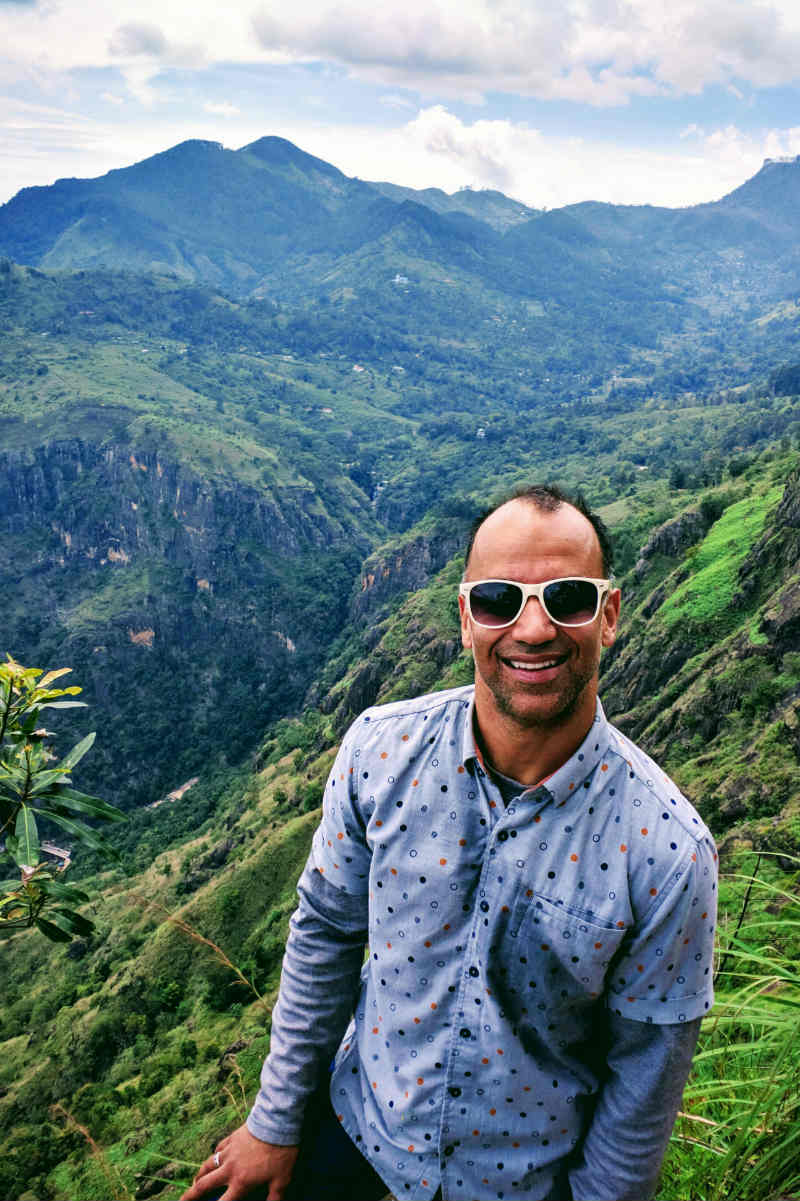
Riad Bacchus, founder of the consulting company Nimbold, is a Faculty of Science alumnus and donor. By establishing the Bacchus Family Scholarship in Science, he's helping equip today's students for success. Photo courtesy of Riad Bacchus.
Faculty of Science alumnus and entrepreneur Riad Bacchus immigrated to Edmonton from Guyana with his family when he was young. Now the founder of a consulting company in Southern California, he credits his time at the University of Alberta for equipping him with the skills for success-something he's paying forward by establishing a science scholarship to help immigrant students succeed in their own journeys.
"I'm part of an immigrant family, and the idea of university was, for my generation of my family, unprecedented," said Bacchus. "I spent my formative years growing up in Edmonton. The University of Alberta was always a presence there in my mind."
But despite coming to Canada with relatively few resources, Bacchus explained that, to his family, it was a foregone conclusion that their children would go to university in their new home town-and that meant the University of Alberta.
Computers and curiosity
A self-described "math geek," Bacchus knew he wanted to study science but wasn't sure what field would be the best fit for him. An elective taken by happenstance, however, brought him into a field that was taking off at the University of Alberta: computing science.
"It just so happened that while I was in the general first year, I decided that I'd take computing science as one of my electives," said Bacchus. "The course was taught by a gentleman named Jonathan Schaeffer who was doing some interesting work with respect to the game of checkers."
In fact, at the time Schaeffer was working on Chinook, a computer program designed to to play checkers, which in 2007 would go on to "solve" the game after 18 years of computation. Bacchus recalls that the expertise in computing science that was forming at the University of Alberta at the time seized his curiosity.
"That sort of problem-solving and the idea of blending that with the vast computing power that was becoming available to us at the time in the early 90s, was very intriguing," said Bacchus. "Schaeffer presented it in a way that was incredibly exciting, and after that first semester, I decided to shift gears into computing science. And I guess the rest is history."
Skills that last a lifetime
Bacchus remembers his time at the University of Alberta fondly, recalling how his professors turned the esoteric ones and zeros of computing science into the practicality of problem-solving.
"I think if I were to boil it down to a single takeaway, it would be database tools, algorithm tools, specific computing programs. All of these things come and go," said Bacchus. "But the thing that stayed with me was critical thinking. That's what stuck with me and in my career has allowed me to shine. It's boiling down a problem to its basics, stripping away all the noise, and really looking at "what are we trying to solve?"
The critical thinking skills that Bacchus honed at the University of Alberta have continued to serve him long after graduation. Translating critical thinking skills built at the university into a business opportunity, Bacchus founded his own consulting company, Nimbold.
"Organizations will come to me with a variety of different situations," said Bacchus. My job, really, is about understanding the core business problem and solving that with innovative solutions."
After graduation, a serendipitous internship in Dallas laid the foundation of a career in the United States. Now running Nimbold out of Southern California, Bacchus says that looking back, he's come to realize just how fortunate he was to attend the University of Alberta.
"I'm super proud of having gone to the University of Alberta. I live in the United States now, but I still get my mom to send me U of A t-shirts all the time," laughed Bacchus.
Paying it forward
That pride, plus a personal philosophy of generosity, inspired Bacchus to look for a way to give back to his alma mater and the next generation of students.
"I'm someone who comes from relatively humble beginnings. My company has been fortunate, and I always feel like it's important to give back." said Bacchus. "So I thought this would be a good way to give some help to someone going through their own journey to the University of Alberta."
With that in mind, Bacchus began making a monthly donation to the Faculty of Science, establishing the Bacchus Family Scholarship in Science-specifically to help students that have immigrated to Canada.
"An immigrant to a new country often has to battle things like a language barrier or a lack of financial resources, said Bacchus. "And from first-hand experience, Edmonton weather can be shockingly cold.
"All of these things are obstacles. And if you can knock down one or two of those obstacles to make that journey just a little bit easier, then you're enabling people to be successful."
Bacchus explained that he feels a responsibility to others, to his country, and to the world, and believes it's important for people to give more than they take. He credits his youth and his university career, where he was surrounded by people who believed in giving, to shaping that outlook. And it's one he challenges others to practice as well.
"We have a responsibility to give back to others. Whoever you choose to be the recipient of your generosity, it will make a difference," said Bacchus. "Your story is your own. You're going to give to whomever you choose to give-but just give. They'll appreciate it, and the world will be a better place for it."
Want to learn more about impact of giving in the Faculty of Science, or interested in making a donation? Visit our Alumni & Giving hub to find out how University of Alberta donors are changing lives for the public good.